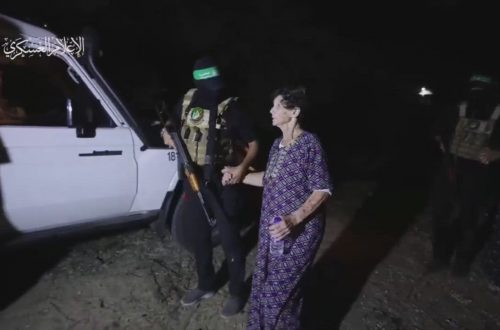We’re used to Guardianistas shilling for unsavoury strongmen and dictators. It’s the ABC of left-wing ‘progressive’ politics these days: hate your own liberal democratic country and cheer for Ahmadinejad, Bashir and Castro.
After the Middle East, Latin America is the Guardian-Left’s favourite spot. Hell, the former Mayor of London even set up a special relationship with Hugo Chavez. But since Julian Assange, the oppressed and persecuted poster-boy for SWP-style progressive sexual expression, has holed up in their embassy, Ecuador now has to be included with Venezuela for Guardian-gushing.
In today’s Comment is Free section of The Guardian, associate editor, Seamus Milne, writes: “Think there’s no alternative? Latin America has a few: Not only have leaders from Ecuador to Venezuela delivered huge social gains – they keep winning elections too”
So what should we make of a part of the world where governments have resolutely turned their back on that model, slashed poverty and inequality, taken back industries and resources from corporate control, massively expanded public services and democratic participation – and keep getting re-elected in fiercely contested elections?
Fiercely contested elections? He must mean Chavez’s really fierce gunmen who attacked journalists and opposition rallies. Even with this ‘help’, Chavez only managed a 55% majority. But readers of Harry’s Place are familiar with the Chavista shenanigans, so no need to rehash.
But what of Ecuador, that sanctuary for slippery sexual assailants? Is this really a progressive template from which Europe, and the United Kingdom in particular, can learn?
Well, let’s see what Amnesty International has to say about “progressive” Ecuador:
- Repression of indigenous people: The IACHR found that the Ecuadorian state violated the community’s right to be consulted, as well as their community property rights and their cultural identity, a practice which continues to this day, according to Amnesty.
- No right to protest: AI notes that the Ecuadoran state engages is” a deliberate attempt by the state to discourage legitimate protest” and “a pattern of criminalization of community leaders who have participated in peaceful protests and then face unfounded charges, arbitrary arrests and strict bail conditions”
- Severe limitations on press freedom: Journalists jailed for calling the president “a dictator”. The president responded by acting dictatorially and imprisoning his critics. “This harsh sentence is an attack on the right to free speech for everyone in Ecuador, and will discourage journalists from engaging in legitimate criticism of the government,” said Amnesty international.
- Death threats against human rights campaigners: 1in 2009, Amnesty warned: “A government official has threatened to kill human rights defenders Joel Vicente Zhunio Samaniego and Wilmar Fernando Mejia Reinoso. Human rights defender Etelvina de Jesus Misacango Chuñir has been threatened and assaulted because of her work. All three are in grave danger.” Amnesty further noted that the police are often complicit in the intimidation of activists.
- Politically motivated detention: “Guadalupe Llori, the governor (prefecta) of the province of Orellana is being detained in the El Inca women’s prison in the capital, Quito, on what appear to be charges of terrorism, sabotage and fraud. Amnesty International believes that these charges may be politically motivated, as Guadalupe Llori represents an opposition political party.” After almost 10 months in prison she was released without charge, but only after a further “administrative” delay. There are other examples suggesting this is routine. “Amnesty International believes that Wilman Jiménez Salazar has not used or advocated violence and that he is a prisoner of conscience, arbitrarily detained because of his legitimate activities as a human rights defender.”
In summary, after St Julian fled to the Ecuadorian embassy last year, Guadalupe Marengo, Deputy Director of Amnesty International’s Americas Programme had this to say:
“His choice of safe haven will have had many in Europe reaching for their world atlases as they tried to identify the precise location of the South American country. Those of us who follow events in the Americas particularly relating to human rights know that Ecuador is far from a safe haven, in particular for the most marginalized in society.”
So it is obvious that Ecuador and its indefatigable resident Rafael Correa is now a darling of The Guardian. This is apparently the alternative society we liberal democracies ought to be looking at. Well, it makes sense, I suppose. Without this sort of repression and curbs on civil liberties, there is no way Milne and his fellow travellers could ever roll out their social revolution.


